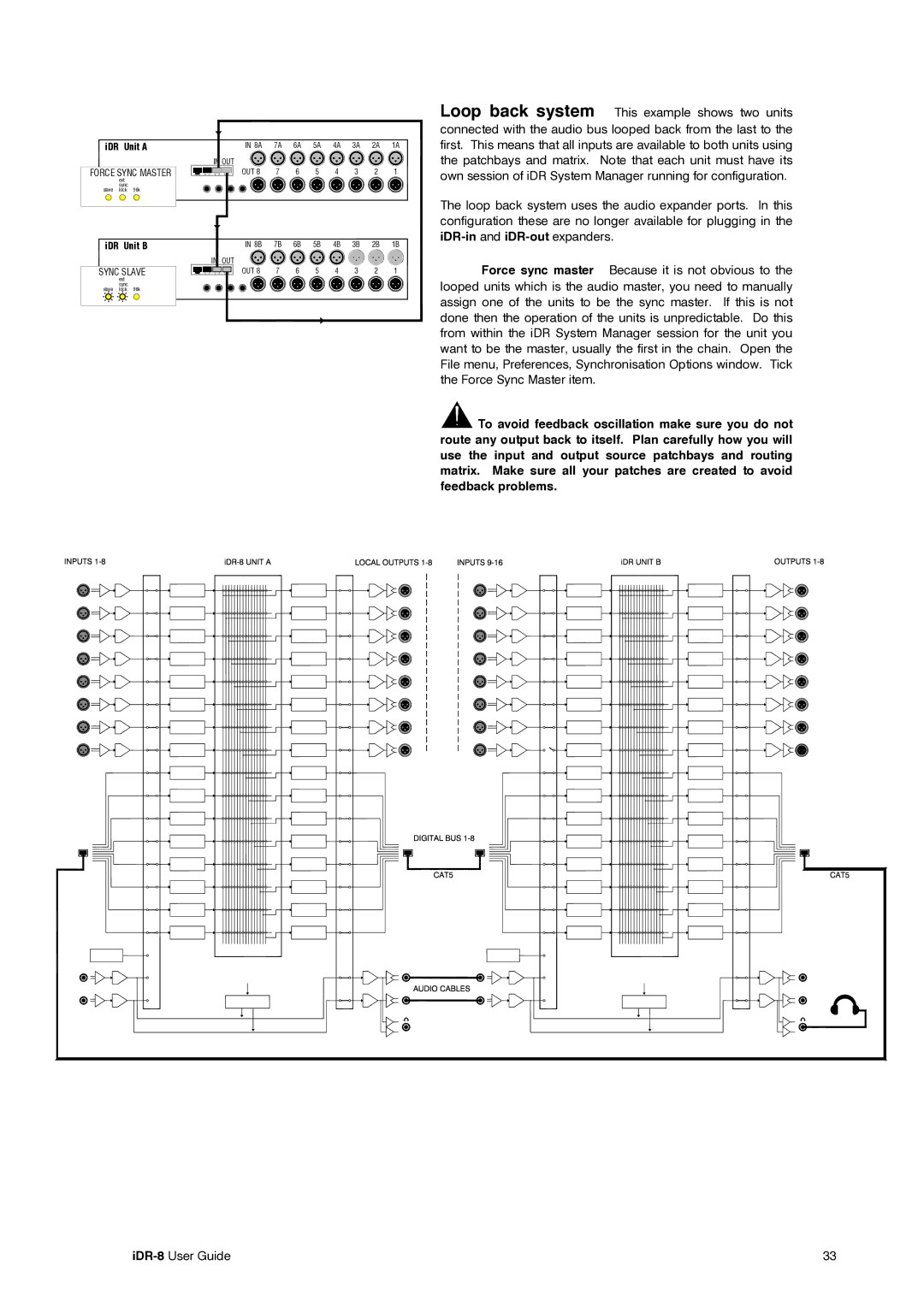
iDR | Unit A | IN 8A | 7A | 6A | 5A | 4A | 3A | 2A | 1A | |
|
| IN OUT |
|
|
|
|
|
|
| |
FORCE SYNC MASTER | OUT 8 | 7 | 6 | 5 | 4 | 3 | 2 | 1 | ||
| ext |
|
|
|
|
|
|
|
|
|
| sync |
|
|
|
|
|
|
|
|
|
slave | lock | 96k |
|
|
|
|
|
|
|
|
iDR | Unit B | IN 8B | 7B | 6B | 5B | 4B | 3B | 2B | 1B | |
|
| IN | OUT |
|
|
|
|
|
|
|
SYNC SLAVE | OUT 8 | 7 | 6 | 5 | 4 | 3 | 2 | 1 | ||
| ext |
|
|
|
|
|
|
|
|
|
| sync |
|
|
|
|
|
|
|
|
|
slave | lock | 96k |
|
|
|
|
|
|
|
|
Loop back system This example shows two units connected with the audio bus looped back from the last to the first. This means that all inputs are available to both units using the patchbays and matrix. Note that each unit must have its own session of iDR System Manager running for configuration.
The loop back system uses the audio expander ports. In this configuration these are no longer available for plugging in the
Force sync master Because it is not obvious to the looped units which is the audio master, you need to manually assign one of the units to be the sync master. If this is not done then the operation of the units is unpredictable. Do this from within the iDR System Manager session for the unit you want to be the master, usually the first in the chain. Open the File menu, Preferences, Synchronisation Options window. Tick the Force Sync Master item.
![]() To avoid feedback oscillation make sure you do not route any output back to itself. Plan carefully how you will use the input and output source patchbays and routing matrix. Make sure all your patches are created to avoid feedback problems.
To avoid feedback oscillation make sure you do not route any output back to itself. Plan carefully how you will use the input and output source patchbays and routing matrix. Make sure all your patches are created to avoid feedback problems.
| 33 |
